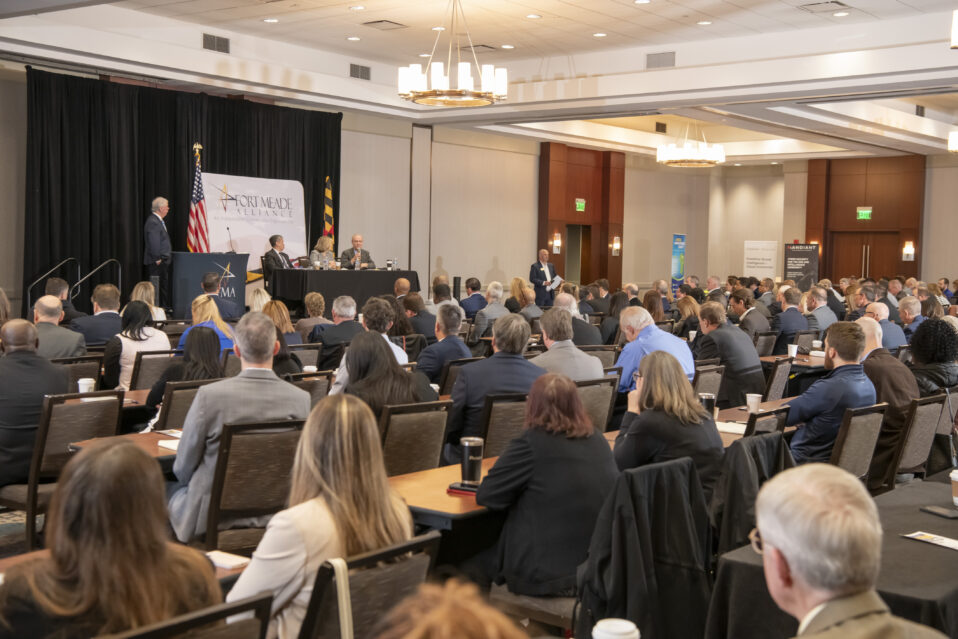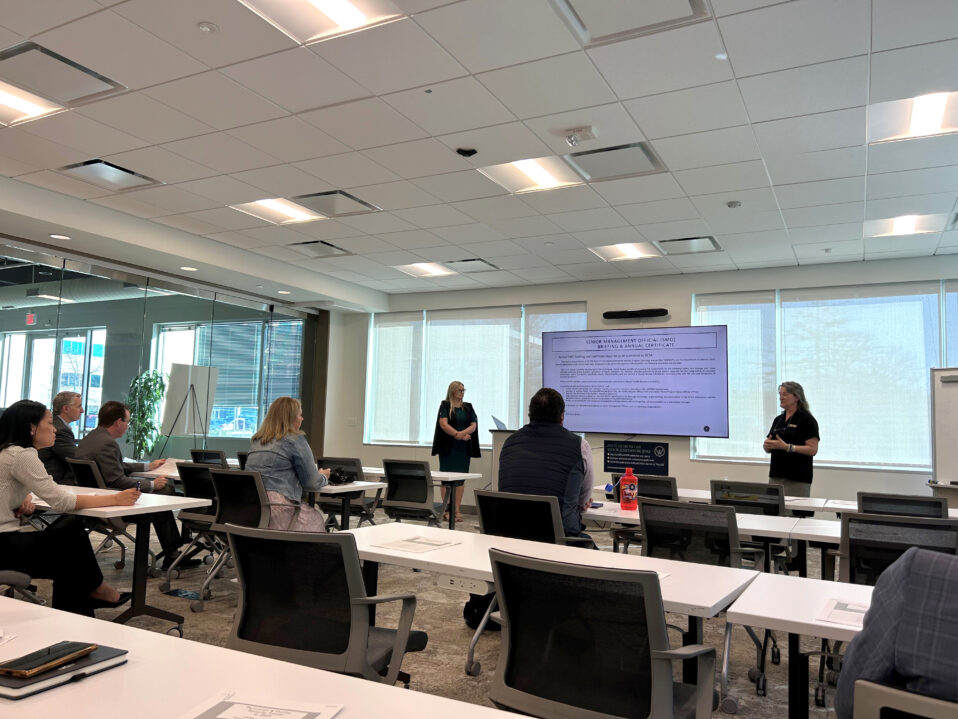 Earlier this year, the Maryland Economic Development and Business Climate Commission, chaired by retired Lockheed Martin CEO Norm Augustine, released a report outlining 32 recommendations to make Maryland more competitive. After reading the report’s analysis of Maryland’s current business climate, Mike Gill, Secretary of the Maryland Department of Business and Economic Development, said it reminded him of a restaurant review.
Earlier this year, the Maryland Economic Development and Business Climate Commission, chaired by retired Lockheed Martin CEO Norm Augustine, released a report outlining 32 recommendations to make Maryland more competitive. After reading the report’s analysis of Maryland’s current business climate, Mike Gill, Secretary of the Maryland Department of Business and Economic Development, said it reminded him of a restaurant review.
“If Maryland would have been a restaurant getting reviewed, it would have said great food, lousy service, too expensive,” he said.
Since the report’s release on February 12, 2015, the Commission’s recommendations have received overwhelming bi-partisan support from State officials. Augustine and Gill updated FMA members on the progress during a September 24 panel discussion moderated by FMA Immediate Past President Deon Viergutz, Vice President of Cyber Solutions for Lockheed Martin.
Augustine said that the leaders of the Maryland Senate and House of Delegates recognize that Maryland needs to foster a more competitive business environment. In addition, Governor Larry Hogan has made improving Maryland’s business climate a top priority.
“To me, the planets are aligned and we have an opportunity that we may not get again for a long time,” Augustine said. “Other states are moving ahead. Other countries are moving ahead. This is a great state, but today we are not competitive and we’ve got to do something about it.”
Several of the Commission’s recommendations were included as part of five bills signed into law earlier this year. Two key initiatives that go hand-in-hand are efforts to reorganize and consolidate Maryland’s economic development efforts under the new Department of Commerce and to improve customer service at state agencies that interact with businesses.
Gill said that the reorganization of the State’s economic development assets is nearly complete. Consolidating programs from DBED, the Maryland Technology Development Corporation (TEDCO), the Maryland Venture Fund and others under the new Department of Commerce will make it easier for entrepreneurs to access resources available from the State. He outlined a plan that includes increased focus on critical industry sectors and more collaboration and strategic partnerships to enhance economic development, education and entrepreneurship.
“I think there are a lot of things that need to be done that are in the form of housekeeping,” Augustine said. “Make it easier to start a company, make it easier to comply with regulations, those kind of things are really important.”
During the first phase of its work, the Commission traveled around the State seeking feedback from businesses. Augustine found it interesting that many of the complaints he heard weren’t directly about the State’s regulations themselves, but rather a lack of responsiveness and customer service from State agencies. He said that one of the big changes the Commission recommended was to gain the commitment of State leaders to improve customer service at key State agencies to ensure more responsiveness and consistency.
Gill said that affecting this type of change starts at the top. Success will be measured based on performance in the many small interactions agencies have with businesses every day.
“We are making progress, but this isn’t going to happen overnight,” Gill said. “Until economic development becomes not a department but a culture, [we will not get there]. When we get there, we’ll be untouchable.”
Augustine said technology drives the economy, and Maryland needs to do more to take advantage of its research and development assets to create businesses and jobs. The State’s strengths in the cyber security industry provide a competitive advantage and potential launching pad for future economic growth.
In addition, Gill touted the State’s strengths in health sciences and education technology as key drivers for the future. Capitalizing on these strengths will require collaboration between industry, academia and government, as well as a renewed focus on workforce development.
“It takes talented, well educated people, a lot of engineers, scientists, mathematicians, and our country has not been real great at producing those,” Augustine said. “We need to some how get our young people more interested in technology because we are losing a huge talent base in this country because of a lack of enthusiasm in these fields.“
“Increasing Maryland’s competitiveness is crucial to attracting the companies and talent needed to boost our economy and support the vital missions at Fort Meade,” FMA President Steve Tiller said.




Post a comment